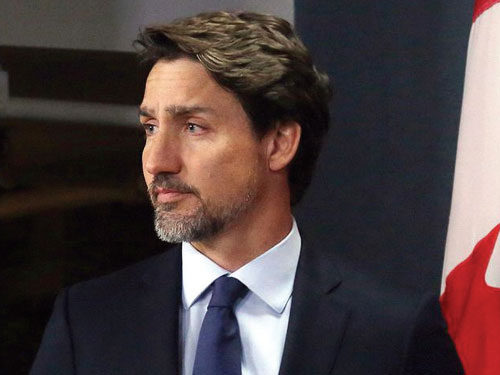Page 1: A New Era?
Page 2: A CETA-like UK-Canada Agreement on Horizon?
Buttressed by a historic bilateral trade and political relationship that goes back several centuries, the Trudeau government is heeding widespread calls from the Canadian business community to demonstrate a British-style stiff-upper-lip during the transition period to December 31 that the UK remains a member of the European Union. In brief, don’t rush into a post-Brexit deal – and keep calm.
On January 31, the fateful Brexit Day, Prime Minister Trudeau said he was confident that Britain’s departure from the EU would be marked by “an orderly transition” characterized by minimal disruption to Canadian trade and investment. Whatever the outcome of Brexit, the Ottawa authorities seek a “seamless transition” – which arguably may or may not transpire.

Until the end of this year, Britain remains bound by the sweeping EU-Canada free trade pact with Canada on goods and services, the Comprehensive Economic and Trade Agreement known as CETA that came into force in September 2017. While there have been informal discussions in the past year on rolling over elements of CETA into a bilateral accord, no date for formal negotiations have yet been set.
A New Era?
Given the dimension of the Canada-UK trade and investment relationship, there is obviously strong mutual motivation to embark on a new era. In fact, there appears to be leverage on both sides to make a deal, whereas analysts consider that Britain has virtually zero leverage in upcoming trade talks with the United States and the EU.
Latest available complete figures show Canada-UK trade totaling C$25.2 billion in 2018 and Canada-EU trade surpassing C$117 billion. Canadian trade with the UK represents nearly 21% of all Canada’s trade with the 28 EU member countries. Much of this trade passes to and from the Port of Montreal.
Thus, by far, the UK is Canada’s biggest trading partner in Europe (with Germany second) and its third most important market destination (exports of C$17 billion) in the world after the United States and China. In addition, the UK is Canada’s third largest destination for foreign investment abroad. Similarly, the UK exports and invests more in Canada than any other EU member.
Otherwise, generally speaking, the UK’s exit from the EU has profound implications for Canada-UK trade relations. According to a recent research report, the two countries are linked via the EU to at least 94 treaties and international agreements. And the two countries have treaties in seven broad categories, including trade, transportation and agriculture.
A spokesman for Canada’s International Trade Department has stressed that any future trade accord between Canada and the UK would be influenced by the evolving UK-EU relationship “as well as by any unilateral UK approaches.”
Not so Fast…
That is putting things into proper perspective, says Brian Kingston, vice-president of the Business Council of Canada, which represents business leaders in many regions and sector of the country. He suggested shortly before Brexit’s final bell that rushing into adopting a possible new bilateral version of CETA would be a tactical error.
“It’s difficult to negotiate a trade deal with the UK when we don’t know what the relationship with Europe will be. That is their most attractive feature – being part of this massive common market.”

Under the best-case scenario, the EU and the UK would negotiate (by December 31) “a comprehensive trade deal that allows businesses based in the UK to access the EU market. This would also benefit Canadian companies that have operations in the EU.”
“A more concerning outcome,” Kingston went on, “is when the UK and the EU do not negotiate a comprehensive trade deal. In this situation, the UK will crash into the European common market and may face barriers when companies try to access that market.




